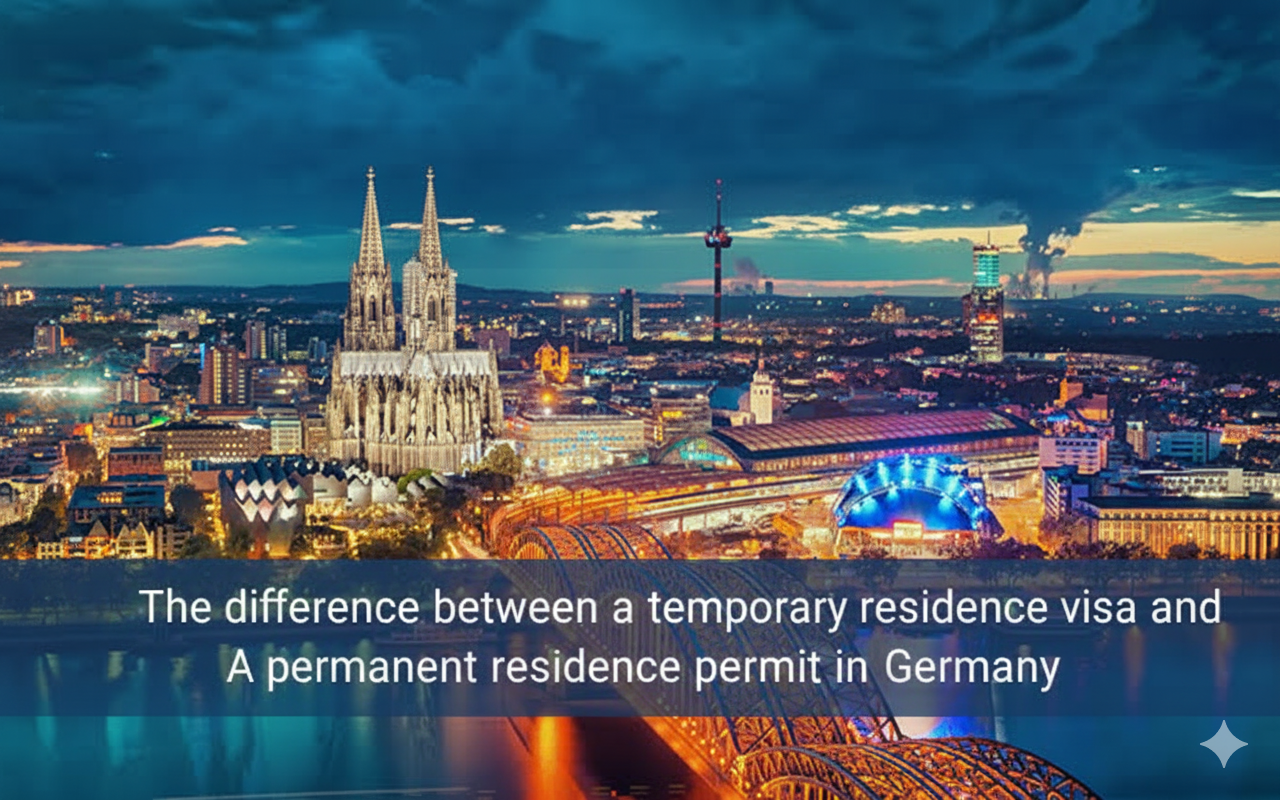Your cart is currently empty!
Legal forms of residence in Germany for foreign nationals
Bạn có biết rằng Đức – nền kinh tế lớn nhất châu Âu – không chỉ nổi tiếng với ô tô, bia và bóng đá mà còn là một trong những điểm đến hàng đầu thế giới dành cho người nhập cư không?
Description
Did you know that Germany — the largest economy in Europe — is not only famous for cars, beer, and football, but also one of the world’s top destinations for immigrants?
However, to legally settle down and build a stable life here, you must clearly understand:
What are the legal ways to obtain residence in Germany?
And which path is right for you?
Today, TheGioiDinhCu.com will guide you through each category in detail — with specific conditions, timelines, and benefits.
—
1. Residence through employment – The most common path
This is the most accessible and widely used route for foreigners who want to live permanently in Germany.
If you have an academic degree, vocational training, or relevant work experience, you can apply for a residence permit for employment purposes, known as Aufenthaltserlaubnis zum Zweck der Erwerbstätigkeit.
For example, if you hold a university degree and your job pays at least forty-nine thousand five hundred euros per year, you can apply for the EU Blue Card.
This card allows you to live and work in Germany and, after thirty-three months, you may apply for a permanent residence permit (Niederlassungserlaubnis).
If you can prove your German language skills at level B1, the period shortens to just twenty-one months — less than two years.
Even skilled or semi-skilled workers without a university degree have opportunities through programs such as the Skilled Worker Visa (Fachkraftvisum), provided your qualification is officially recognized in Germany.
After five years of continuous employment, with full tax and social insurance contributions, you can also apply for permanent residence.
—
2. Residence through studying – From student to long-term resident
Many young people choose Germany for its affordable education and the chance to stay after graduation.
Once you finish your studies, you are allowed to remain for eighteen months to look for a job in your field.
If you find one, you can switch to a work visa.
Then, by working continuously and paying taxes, you can later apply for permanent residence — just like in the employment route.
However, it’s important to note that a student visa does not automatically lead to permanent residency.
You must actively switch your visa category after graduation.
—
3. Residence through marriage or family reunification
If you marry a German citizen or someone with permanent residency, you can apply for a family reunification residence permit (Familiennachzug).
After three years of marriage and living together in Germany, you may apply for permanent residence.
You must, however, prove that your marriage is genuine, that you have basic financial stability, and that you can speak German at least at A1 level.
Having a child born in Germany can also strengthen your case for long-term settlement.
—
4. Residence through investment or business
For entrepreneurs and investors, Germany offers a pathway via the self-employment residence permit (Aufenthaltserlaubnis für selbständige Tätigkeit).
You must demonstrate a viable business plan, clear benefit to the German economy, and sufficient capital — usually at least two hundred fifty thousand euros in major cities such as Berlin or Munich.
If your business succeeds and provides real economic value, you can apply for permanent residence after three years.
This is the fastest route to settlement, though it requires significant financial resources and business experience.
—
5. Residence on humanitarian or asylum grounds
Some individuals receive residence permits for humanitarian reasons — for example, due to war, political persecution, or being unable to return home.
If you are officially recognized as a refugee (Flüchtlingsstatus), you may legally stay in Germany and receive several benefits such as healthcare, social assistance, and free vocational training.
After five years, you can apply for permanent residence, and after eight years, you may even apply for German citizenship if you meet language and integration requirements.
—
6. Residence for researchers and academics
If you are a researcher, lecturer, or academic, you can apply for a visa under the Forschung category.
After two years of continuous work — especially with a long-term contract at a recognized research institution — you can switch to a permanent residence permit.
Germany actively encourages this group, as they contribute valuable knowledge and innovation.
—
7. General pathway to permanent residency and citizenship
Regardless of the route you take, the general principles remain the same:
You must reside legally for at least five consecutive years.
Pay taxes and social insurance.
Have stable income.
No criminal record.
Possess B1 level German proficiency.
And pass the “Einbürgerungstest” — a test on German society and laws.
Once all conditions are met, you receive the permanent residence permit.
Later, you can apply for German citizenship after eight years of residence — or six years if you have exceptional achievements in language or integration.
—
Conclusion
As you can see, there’s no single path to settle legally in Germany.
Whether you start as a student, worker, entrepreneur, or through family — what truly matters is staying compliant with immigration laws, paying your dues, and contributing positively to German society.
If you’re still wondering which path best fits your case, visit Gadaco.com




Reviews
There are no reviews yet.